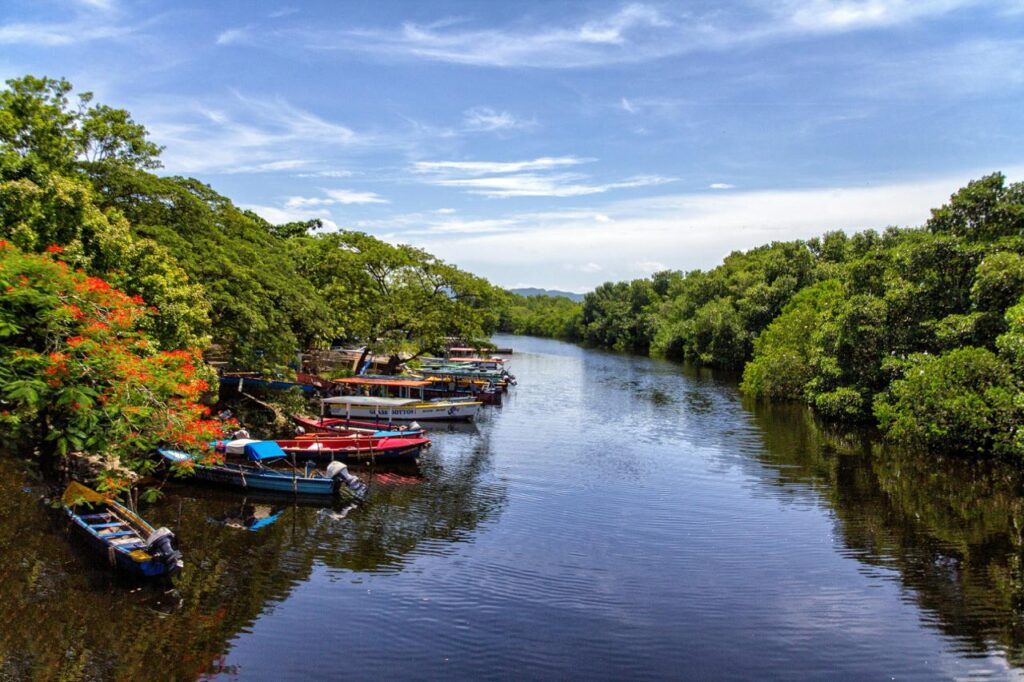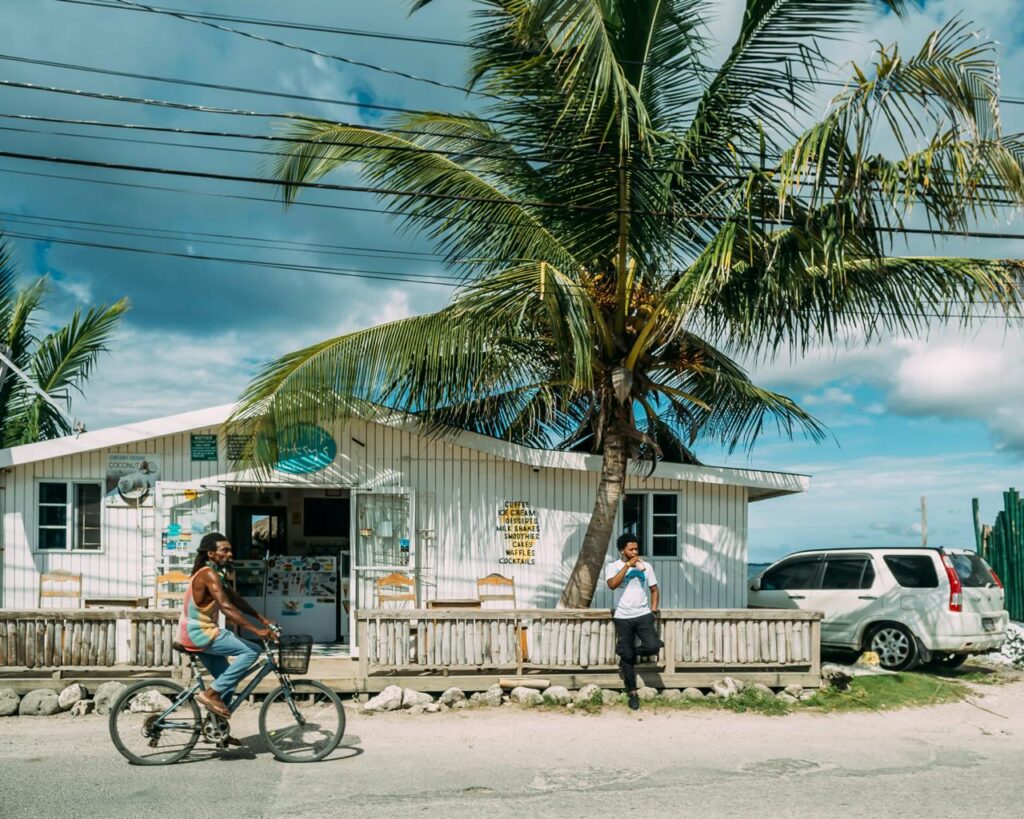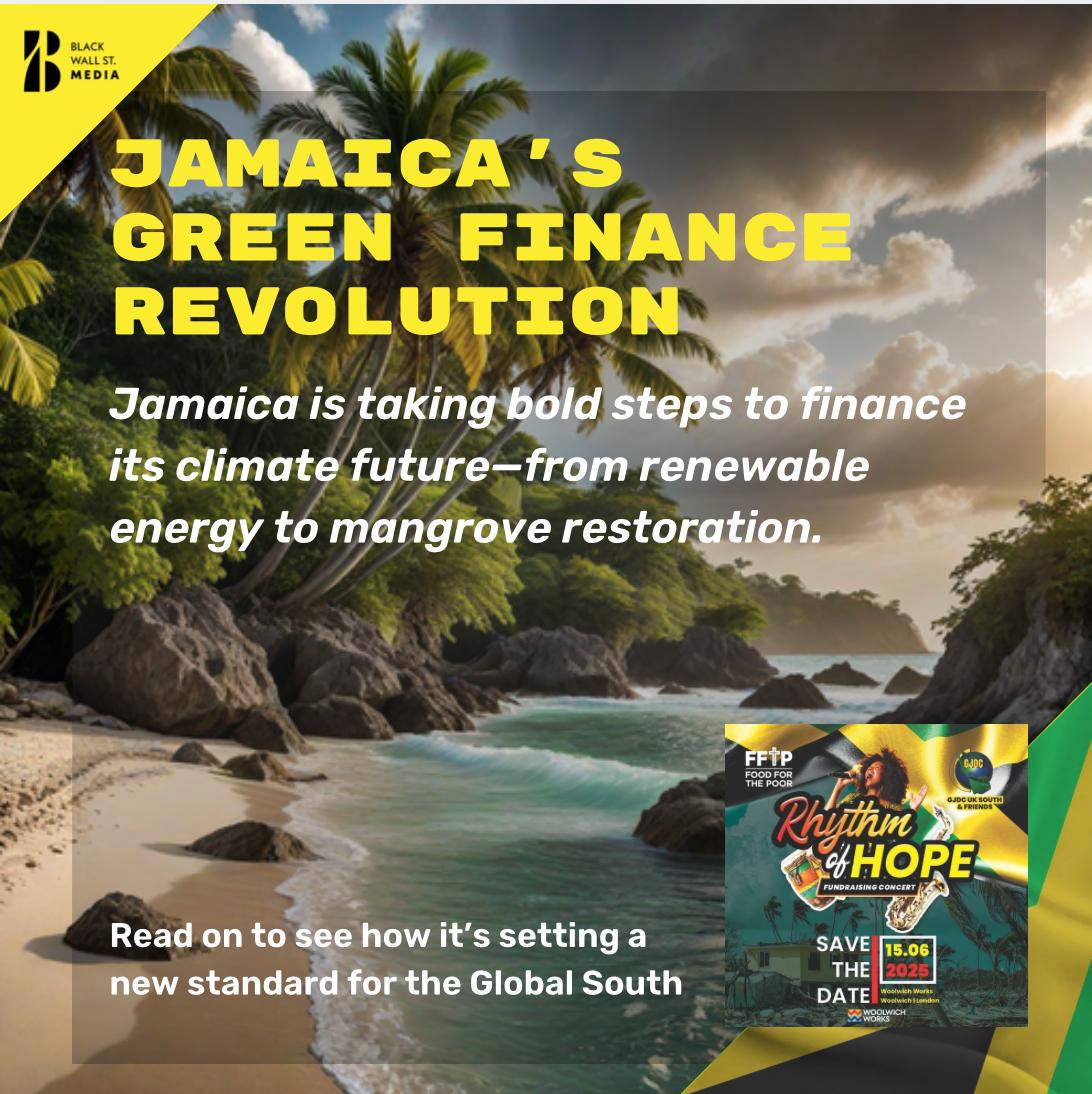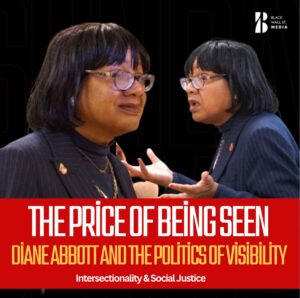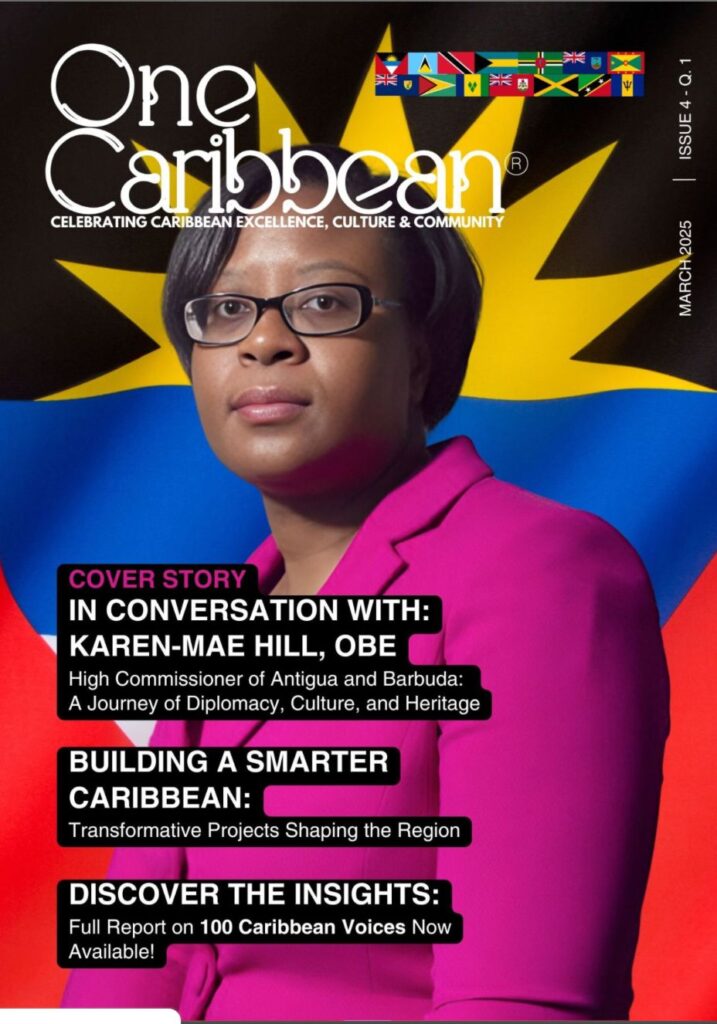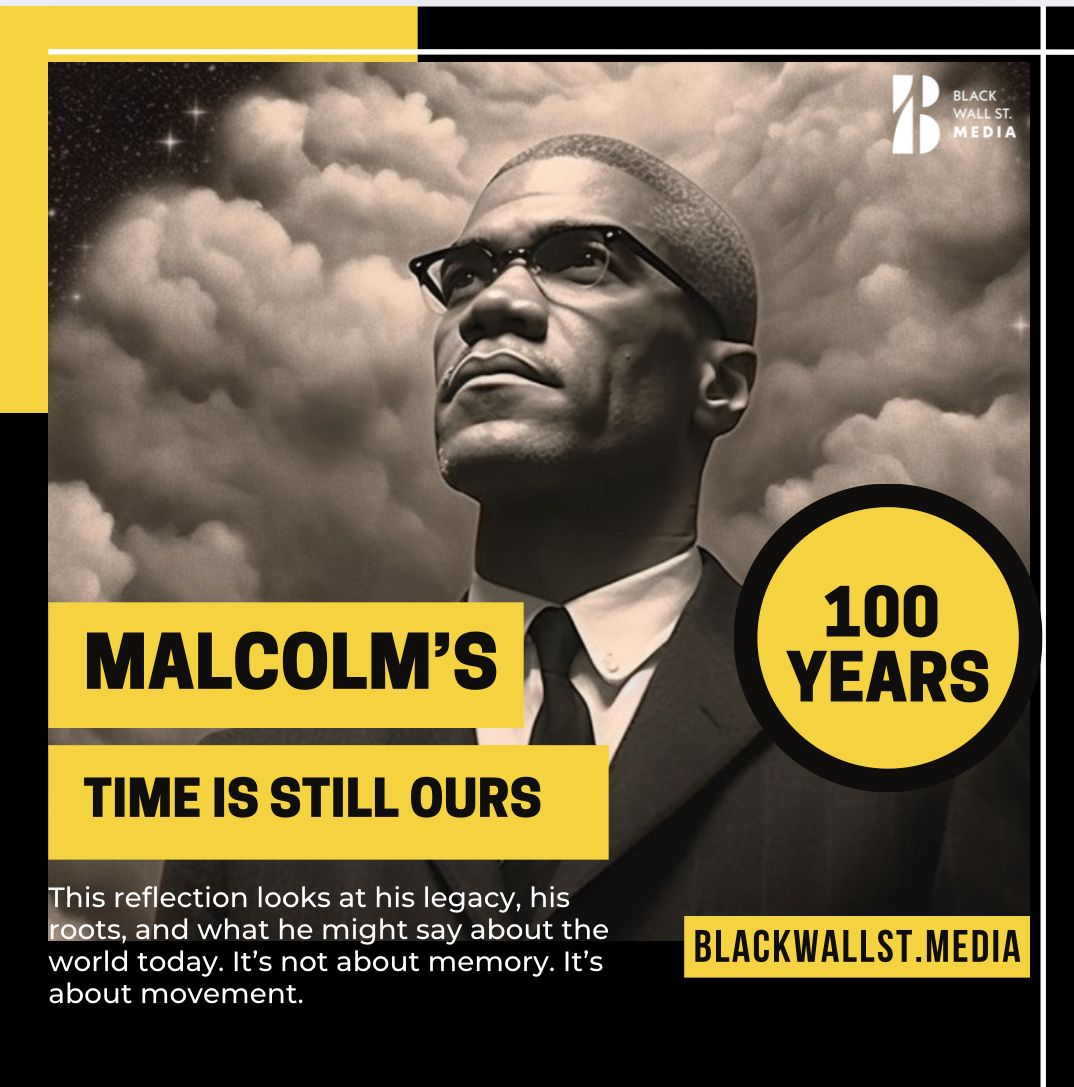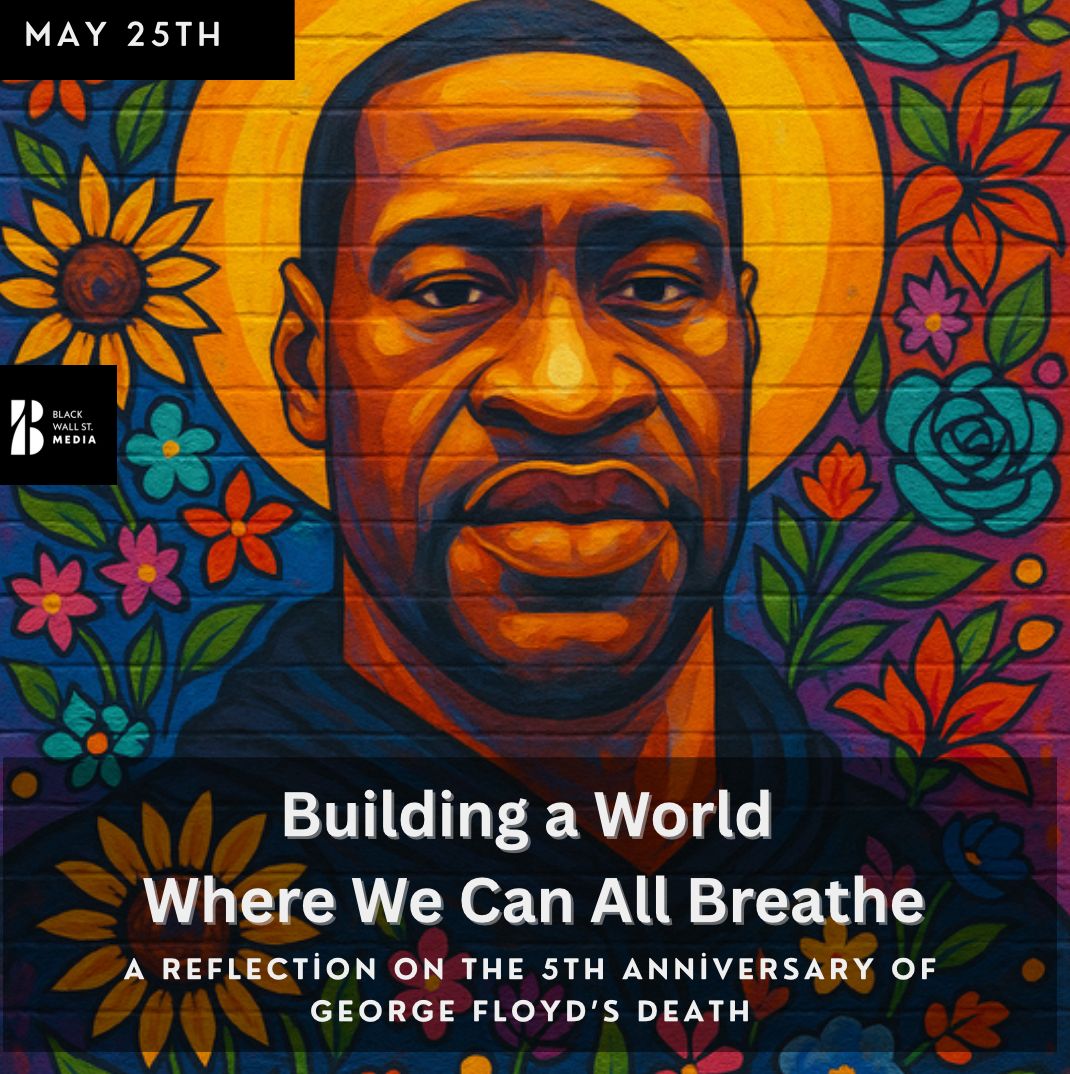Diaspora and Development
Jamaica’s Climate Playbook
“How a Small Island Nation is Redefining Green Finance”
BWSMCONTRIBUTOR
When it comes to climate action, small islands often find themselves on the frontlines but far from the decision-making centers of global finance.
Yet, one country is flipping that script. Jamaica—long celebrated for its music and culture—is quietly building a reputation for something far less expected: climate finance innovation.
More Than a Victim: Jamaica as a Climate Finance Architect
Rather than waiting for aid or reacting passively to the escalating climate emergency, Jamaica has charted its own course. The country’s bold step in 2021 to launch the world’s first parametric catastrophe bond tailored for climate-related disasters wasn’t just a technical maneuver—it was a statement. A signal that Jamaica would not be defined solely by vulnerability, but by ingenuity.
The bond, designed to release funds quickly after hurricanes or other disasters, laid the foundation for a broader, forward-thinking financial strategy—one that blends environmental goals with economic resilience.
Connecting Policy, Capital, and Clean Energy
Today, Jamaica’s ambitions are comprehensive. The government has committed to sourcing at least half of its electricity from renewables by 2030. But pledges alone don’t power homes. It’s the supporting architecture—tax incentives for solar panel adoption, reduced import duties on clean tech, and net metering—that’s transforming policy into progress.
Institutions like the Development Bank of Jamaica are pushing the envelope even further. Through equity stakes in green ventures and climate-focused funds, the DBJ is helping to catalyze private sector investment.
Meanwhile, commercial banks and credit unions are cautiously expanding access to loans for electric vehicles and home solar systems—a shift that, if accelerated, could bring clean energy within reach for more Jamaicans.
Cultivating Resilience, From Crops to Coastlines
Jamaica’s climate response isn’t confined to energy. It reaches deep into the soil and the sea. The country is rethinking how it feeds itself, promoting drought-resistant crops, organic practices, and sustainable land use through grants and agricultural support services.
Just offshore, mangrove forests—once overlooked—are now being restored and protected.
Organisations like the Alligator Head Foundation are leading efforts to rebuild these natural buffers, which shield coastlines from storms, support biodiversity, and capture carbon.
These projects are increasingly eligible for international carbon credits, adding yet another layer to Jamaica’s climate finance toolkit.
Diaspora Dollars, Reimagined
Perhaps one of the most intriguing parts of Jamaica’s model is how it taps into the wealth of its global diaspora. Traditionally a source of remittances, Jamaicans abroad are now being invited to invest—not just give. Through green bonds and climate-linked funds designed specifically for diaspora investors, the country is exploring a powerful new financing stream: patriotism-powered capital.
This approach repositions the diaspora as financial partners in national resilience, offering them both a return on investment and a role in Jamaica’s climate future.
A Template for the Global South?
So, what can other nations learn from Jamaica? The country’s strategy offers more than inspiration—it provides a framework:
-
Think beyond aid: Instruments like catastrophe bonds and green equity funds show how countries can leverage markets to build resilience.
-
Design around policy: Incentives and clarity attract investment. De-risking climate projects is key.
-
Partner broadly: Governments, banks, businesses, and citizens all have a role—and success depends on alignment.
-
Look to your people: Diasporas are more than sentimental ties; they’re a bridge to capital and innovation.
The Road Ahead
Of course, the path is far from smooth. Green technologies remain expensive, uptake is uneven, and financial inclusion gaps persist. But Jamaica is proving that progress doesn’t require perfection—it requires persistence, smart strategy, and a willingness to lead.
As world leaders prepare to meet at COP30 in Brazil, Jamaica’s story stands as a powerful reminder: even the smallest nations can reshape the rules of climate finance—and in doing so, help secure a more sustainable future for all.
Be part of the change!!









